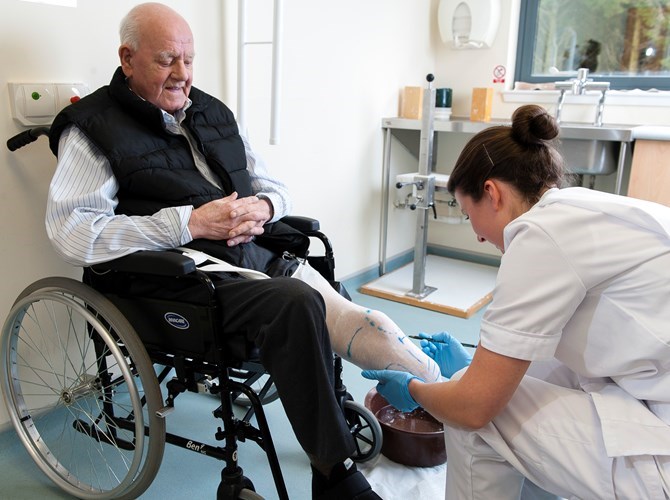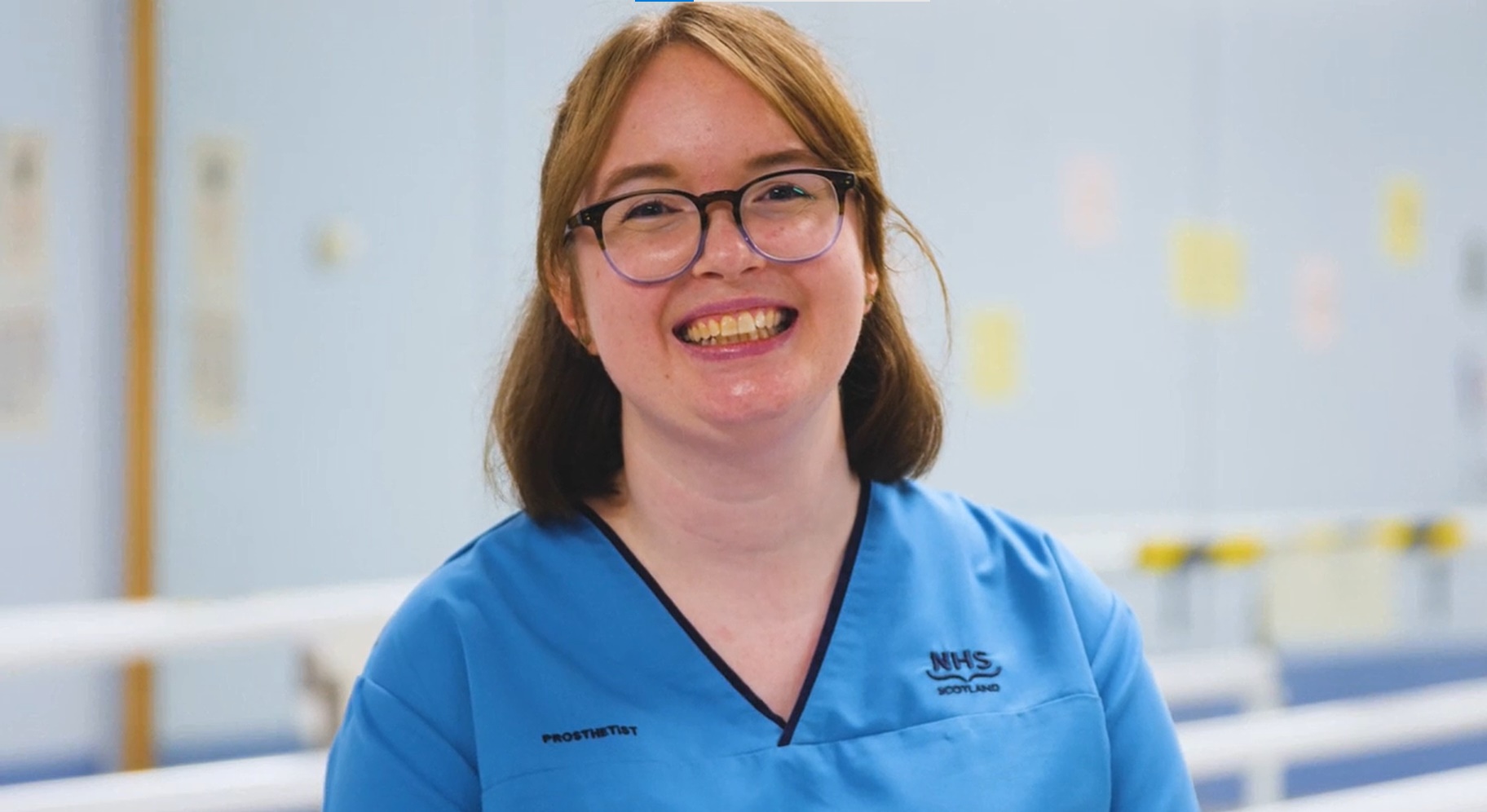Previous
Podiatrist
To become a prosthetist in the NHS, you must complete a pre-registration undergraduate degree programme approved by the Health and Care Professions Council (HCPC).
Prosthetists design and create artificial limbs for people who need them. They care for people who have arms or legs missing from birth or those who lose limbs through accident, injury, or amputation.

To get on a course that could lead to a career as a prosthetist, useful subjects include:
Speak to your guidance teacher about subjects offered at your school.

You may find it helpful to get some healthcare experience by doing a work placement or volunteering. You’ll get training, increase your knowledge, and learn new skills. This could help you when applying to college, university, or a new job with NHSScotland.
To become a prosthetist, you’ll need to complete a Prosthetics and Orthotics undergraduate degree programme at SCQF level 10. Most universities accept a wide range of qualifications, giving you the option of applying directly from school or going to college first.
At college, you could do an HND in Engineering Systems at SCQF level 8.
Widening participation supports adult learners who want to go to university. If you’re an adult with few or no qualifications, you could get into higher education through the Scottish Wider Access Programme (SWAP). Many universities also provide access programmes to help you get the degree entry qualifications you need.
In Scotland, the University of Strathclyde offers a four-year pre-registration undergraduate programme in Prosthetics and Orthotics. The programme is approved by the Health and Care Professions Council and the International Society for Prosthetics and Orthotics.
Find out more about the course content and how to apply.
The Health and Care Professions Council (HCPC) sets education, training, and professional practice standards for all allied health professions, including prosthetists.
After graduation, you must register with the HCPC. You can then apply as a newly qualified prosthetist for NHS vacancies.
As a prosthetist, you'll provide a prosthesis to people who have lost arms or legs through amputation or those who were born with missing limbs.
You’ll work closely with the patient to understand their needs and goals. For example, some prostheses are specially designed for a particular use or activity, such as sports.
After measuring the patient, you'll make a model of the remaining limb with plaster or scanning technology. You'll then manually adjust the plaster mould or use computer-aided design to make adjustments with technology. Once the prosthetic limb has been made by a prosthetic technician in the workshop, you'll fit it to ensure comfort and performance.
Working with doctors, nurses, physiotherapists, and occupational therapists, you’ll provide advice to make sure patients receive appropriate rehabilitation and aftercare support.
Typical tasks could include:
You'll need these skills:
Prosthetists work with other healthcare professionals, including:
You could work in:

Check out our 360 videos to find out how prosthetists support adults and children who have undergone amputations or were born with limb absence.
You'll meet Hannah, a senior prosthetist based in the West of Scotland Mobility and Rehabilitation Centre (WestMARC).
Hannah explains her motivations for becoming a prosthetist. She says, "The best part of my job is when I really feel like I’m having a positive impact on someone’s life.”
During your career, you'll have to keep your skills and knowledge up to date with continuing professional development (CPD).
The following professional bodies provide CPD activities, including courses, conferences, and seminars where you can exchange ideas and update skills:
You’ll need to renew your registration with the HCPC every 2 years. This includes making a personal declaration that you have done the following:
Find out more about registration renewals.
With training and experience, you may choose to specialise in a particular area of practice, such as:
You could also progress to senior and specialist prosthetist roles. As head of an orthotics and prosthetics service, you would be responsible both for a team of staff and for managing a budget.
There are also teaching and research opportunities.
As a registered prosthetist, you'll be encouraged to support students on placement and become a practice educator. You’ll provide training opportunities and support the learning, supervision, and assessment of students. These responsibilities will contribute to your professional development.
When you become a qualified prosthetist, you must register with the HCPC to work in the NHS. You can also join the following professional bodies:

Discover the range of AHP careers you can choose in the NHS.
Allied health professions
Our blog includes how-to guides, case studies, and career resources.
Discover more